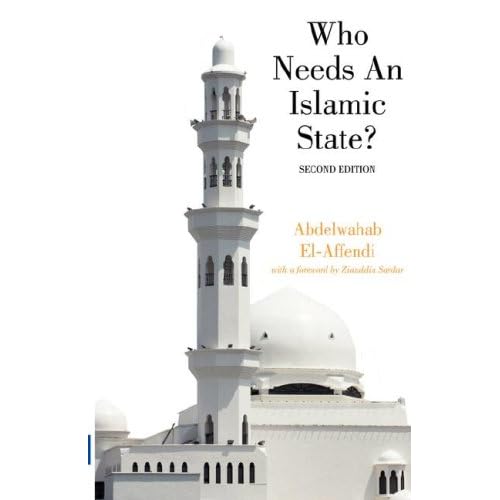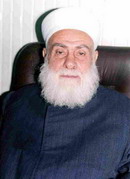Dr M. Quraish Shihab
Sakit perut menjelang persalinan, memaksa Maryam
bersandar ke pohon kurma. Ingin rasanya beliau
mati, bahkan tidak pernah hidup sama sekali.
Tetapi Malaikat Jibril datang menghibur: "Ada anak
sungai di bawahmu, goyanghan pangkal pohon kurma
ke arahmu, makan, minum dan senangkan hatimu.
Kalau ada yang datang katakan: 'Aku bernazar tidak
bicara.'"
"Hai Maryam, engkau melakukan yang amat buruk.
Ayahmu bukan penjahat, ibumu pun bukan penzina,"
demikian kecaman kaumnya, ketika melihat bayi di
gendongannya. Tetapi Maryam terdiam. Beliau hanya
menunjuk bayinya. Dan ketika itu bercakaplah sang
bayi menjelaskan jati dirinya sebagai hamba Allah
yang diberi Al-Kitab, shalat, berzakat serta
mengabdi kepada ibunya. Kemudian sang bayi berdoa:
"Salam sejahtera (semoga) dilimpahkan kepadaku
pada hari kelahiranku, hari wafatku, dan pada hari
ketika aku dibangkitkan hidup kembali."
Itu cuplikan kisah Natal dari Al-Quran Surah Maryam ayat 34.
Dengan demikian, Al-Quran mengabadikan dan merestui ucapan
selamat Natal pertama dari dan untuk Nabi mulia itu, Isa
a.s.
Terlarangkah mengucapkan salam semacam itu? Bukankah
Al-Quran telah memberikan contoh? Bukankah ada juga salam
yang tertuju kepada Nuh, Ibrahim, Musa, Harun, keluarga
Ilyas, serta para nabi lainnya? Setiap Muslim harus percaya
kepada Isa a.s. seperti penjelasan ayat di atas, juga harus
percaya kepada Muhammad saw., karena keduanya adalah hamba
dan utusan Allah. Kita mohonkan curahan shalawat dan salam
untuk mereka berdua sebagaimana kita mohonkan untuk seluruh
nabi dan rasul. Tidak bolehkah kita merayakan hari lahir
(Natal) Isa a.s.? Bukankah Nabi saw. juga merayakan hari
keselamatan Musa a.s. dari gangguan Fir'aun dengan berpuasa
'Asyura, seraya bersabda, "Kita lebih wajar merayakannya
daripada orang Yahudi pengikut Musa a.s."
Bukankah, "Para Nabi bersaudara hanya ibunya yang berbeda?"
seperti disabdakan Nabi Muhammad saw.? Bukankah seluruh umat
bersaudara? Apa salahnya kita bergembira dan menyambut
kegembiraan saudara kita dalam batas kemampuan kita, atau
batas yang digariskan oleh anutan kita? Demikian lebih
kurang pandangan satu pendapat.
Banyak persoalan yang berkaitan dengan kehidupan Al-Masih
yang dijelaskan oleh sejarah atau agama dan telah
disepakati, sehingga harus diterima. Tetapi, ada juga yang
tidak dibenarkan atau diperselisihkan. Disini, kita berhenti
untuk merujuk kepercayaan kita.
Isa a.s. datang mermbawa kasih, "Kasihilah seterumu dan
doakan yang menganiayamu." Muhammad saw. datang membawa
rahmat, "Rahmatilah yang di dunia, niscaya yang di langit
merahmatimu." Manusia adalah fokus ajaran keduanya; karena
itu, keduanya bangga dengan kemanusiaan.
Isa menunjuk dirinya sebagai "anak manusia," sedangkan
Muhammad saw. diperintah:kan oleh Allah untuk berkata: "Aku
manusia seperti kamu." Keduanya datang membebaskan manusia
dari kemiskinan ruhani, kebodohan, dan belenggu penindasan.
Ketika orang-orang mengira bahwa anak Jailrus yang sakit
telah mati, Al-Masih yang menyembuhkannya meluruskan
kekeliruan mereka dengan berkata, "Dia tidak mati, tetapi
tidur." Dan ketika terjadi gerhana pada hari wafatnya putra
Muhammad, orang berkata: "Matahari mengalami gerhana karena
kematiannya." Muhammad saw. lalu menegur, "Matahari tidak
mengalami gerhana karena kematian atau kehahiran seorang."
Keduanya datang membebaskan maanusia baik yang kecil, lemah
dan tertindas -dhu'afa' dan al-mustadh'affin dalam istilah
Al-Quran.
Bukankah ini satu dari sekian titik temu antara Muhammad dan
Al-Masih? Bukankah ini sebagian dari kandungan Kalimat Sawa'
(Kata Sepakat) yang ditawarkan Al-Quran kepada penganut
Kristen (dan Yahudi (QS 3:64)? Kalau demikian, apa salahnya
mengucapkan selamat Natal, selama akidah masih dapat
dipelihara dan selama ucapan itu sejalan dengan apa yang
dimaksud oleh Al-Quran sendiri yang telah mengabadikan
selamat Natal itu?
Itulah antara lain alasan yang membenarkan seorang Muslim
mengucapkan selamat atau menghadiri upacara Natal yang bukan
ritual . Di sisi lain, marilah kita menggunakan kacamata
yang melarangnya.
Agama, sebelum negara, menuntut agar kerukunan umat
dipelihara. Karenanya salah, bahkan dosa, bila kerukunan
dikorbankan atas nama agama. Tetapi, juga salah serta dosa
pula, bila kesucian akidah ternodai oleh atau atas nama
kerukunan.
Teks keagamaan yang berkaitan dengan akidah sangat jelas,
dan tidak juga rinci. Itu semula untuk menghindari kerancuan
dan kesalahpahaman. Bahkan Al-Q!uran tidak menggunakan satu
kata yang mungkin dapat menimbulkan kesalahpahaman, sampai
dapat terjamin bahwa kata atau kalimat itu, tidak
disalahpahami. Kata "Allah," misalnya, tidak digunakan oleh
Al-Quran, ketika pengertian semantiknya yang dipahami
masyarakat jahiliah belum sesuai dengan yang dikehendaki
Islam. Kata yang digunakan sebagai ganti ketika itu adalah
Rabbuka (Tuhanmu, hai Muhammad) Demikian terlihat pada
wahlyu pertama hingga surah Al-Ikhlas. Nabi saw. sering
menguji pemahaman umat tentang Tuhan. Beliau tidak sekalipun
bertanya, "Dimana Tuhan?" Tertolak riwayat sang menggunakan
redaksi itu karena ia menimbulkan kesan keberadaan Tuhan
pada satu tempat, hal yang mustahil bagi-Nya dan mustahil
pula diucapkan oleh Nabi. Dengan alasan serupa, para ulama
bangsa kita enggan menggunakan kata "ada" bagi Tuhan,
tetapi "wujud Tuhan."
Natalan, walaupun berkaitan dengan Isa Al-Masih, manusia
agung lagi suci itu, namun ia dirayakan oleh umat Kristen
yang pandangannya terhadap Al-Masih berbeda dengan pandangan
Islam. Nah, mengucapkan "Selamat Natal" atau menghadiri
perayaannya dapat menimbulkan kesalahpahaman dan dapat
mengantar kepada pengaburan akidah. Ini dapat dipahami
sebagai pengakuan akan ketuhanan Al-Masih, satu keyakinan
yang secara mutlak bertentangan dengan akidah Islam. Dengan
kacamata itu, lahir larangan dan fatwa haram itu,
sampai-sampai ada yang beranggapan jangankan ucapan selamat,
aktivitas apa pun yang berkaitan dengan Natal tidak
dibenarkan, sampai pada jual beli untuk keperluann Natal.
Adakah kacamata lain? Mungkin!
Seperti terlihat, larangan ini muncul dalam rangka upaya
memelihara akidah. Karena, kekhawatiran kerancuan pemahaman,
agaknya lebih banyak ditujukan kepada mereka yang
dikhawatirkan kabur akidahnya. Nah, kalau demikian, jika ada
seseorang yang ketika mengucapkannya tetap murni akidahnya
atau mengucapkannya sesuai dengan kandungan "Selamat
Natal" Qurani, kemudian mempertimbangkan kondisi dan
situasi dimana hal itu diucapkan, sehingga tidak menimbulkan
kerancuan akidah baik bagi dirinya ataupun Muslim yang lain,
maka agaknya tidak beralasan adanya larangan itu. Adakah
yang berwewenang melarang seorang membaca atau mengucapkan
dan menghayati satu ayat Al-Quran?
Dalam rangka interaksi sosial dan keharmonisan hubungan,
Al-Quran memperkenalkan satu bentuk redaksi, dimana lawan
bicara memahaminya sesuai dengan pandangan atau
keyakinannya, tetapi bukan seperti yang dimaksud oleh
pengucapnya. Karena, si pengucap sendiri mengucapkan dan
memahami redaksi itu sesuai dengan pandangan dan
keyakinannya. Salah satu contoh yang dikemukakan adalah
ayat-ayat yang tercantum dalam QS 34:24-25. Kalaupun
non-Muslim memahami ucapan "Selamat Natal" sesuai dengan
keyakinannya, maka biarlah demikian, karena Muslim yang
memahami akidahnya akan mengucapkannya sesuai dengan garis
keyakinannya. Memang, kearifan dibutuhkan dalam rangka
interaksi sosial.
Tidak kelirulah, dalam kacamata ini, fatwa dan larangan itu,
bila ia ditujukan kepada mereka yang dikhawatirkan ternodai
akidahnya. Tetapi, tidak juga salah mereka yang
membolehkannya, selama pengucapnya bersikap arif bijaksana
dan tetap terpelihara akidahnya, lebih-lebih jika hal
tersebut merupakan tuntunan keharmonisan hubungan.
Dostojeivsky (1821-1881), pengarang Rusia kenamaan, pernah
berimajinasi tentang kedatangan kembali Al-Masih. Sebagian
umat Islam pun percaya akan kedatangannya kembali. Terlepas
dari penilaian terhadap imajinasi dan kepercayaan itu, kita
dapat memastikan bahwa jika benar beliau datang, seluruh
umat berkewajiban menyambut dan mendukungnya, dan pada saat
kehadirannya itu pasti banyak hal yang akan beliau luruskan.
Bukan saja sikap dan ucapan umatnya, tetapi juga sikap dan
ucapan umat Muhammad saw. Salam sejahtera semoga tercurah
kepada beliau, pada hari Natalnya, hari wafat dan hari
kebangkitannya nanti.
MEMBUMIKAN AL-QURAN
Fungsi dan Peran Wahyu dalam Kehidupan Masyarakat
Dr. M. Quraish Shihab


 Masjid Babri, atau Masjid Babur adalah sebuah masjid yang didirikan oleh Kaisar Mughal pertama India, Babur, di Ayodhya pada abad ke-16 Masehi. Sebelum tahun 1940-an, masjid ini dinamakan Masjid-i Janmasthan ("masjid tempat kelahiran"). Masjid ini berdiri di Bukit Ramkot (disebut juga Janmasthan ("tempat kelahiran").
Masjid Babri, atau Masjid Babur adalah sebuah masjid yang didirikan oleh Kaisar Mughal pertama India, Babur, di Ayodhya pada abad ke-16 Masehi. Sebelum tahun 1940-an, masjid ini dinamakan Masjid-i Janmasthan ("masjid tempat kelahiran"). Masjid ini berdiri di Bukit Ramkot (disebut juga Janmasthan ("tempat kelahiran").









